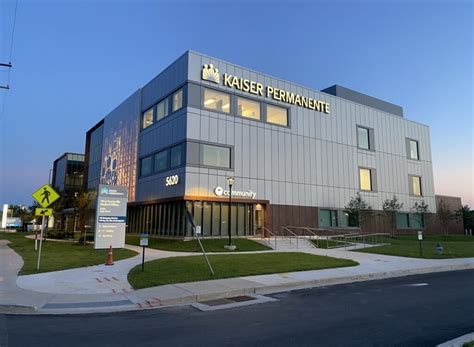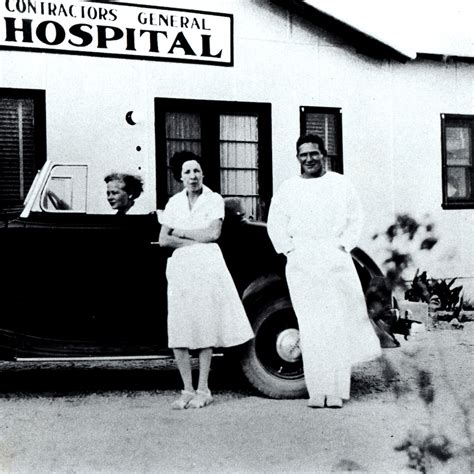Intro
Kaiser Permanente hospitals have been a cornerstone of quality healthcare in the United States for over 75 years. With a strong commitment to providing exceptional patient care, innovative medical research, and community outreach programs, Kaiser Permanente has established itself as a leader in the healthcare industry. From its humble beginnings in the 1930s to its current status as one of the largest not-for-profit healthcare systems in the country, Kaiser Permanente has consistently demonstrated its dedication to delivering high-quality, patient-centered care.

Kaiser Permanente's success can be attributed to its unique approach to healthcare, which emphasizes preventive care, integrated services, and a focus on the whole person – body, mind, and spirit. By providing a comprehensive range of medical services, from primary care to specialized treatments, Kaiser Permanente hospitals have become a trusted resource for millions of Americans.
History of Kaiser Permanente Hospitals
Kaiser Permanente's origins date back to the Great Depression, when industrialist Henry J. Kaiser and his son, Edgar, began providing healthcare services to workers at their shipyards and steel mills. Recognizing the importance of healthcare in maintaining a healthy workforce, the Kaisers established a network of hospitals, clinics, and medical offices that would eventually become the Kaiser Permanente system.

Over the years, Kaiser Permanente has continued to evolve and expand, introducing new technologies, treatments, and services to meet the changing needs of its patients. Today, Kaiser Permanente operates 39 hospitals, over 700 medical offices, and employs more than 22,000 physicians and 200,000 staff members across eight regions in the United States.
Key Features of Kaiser Permanente Hospitals
Kaiser Permanente hospitals are known for their commitment to quality, safety, and patient satisfaction. Some of the key features that set Kaiser Permanente apart from other healthcare systems include:
- Integrated care: Kaiser Permanente's integrated care model ensures that patients receive seamless, coordinated care from a team of healthcare professionals, including primary care physicians, specialists, and support staff.
- Preventive care: Kaiser Permanente places a strong emphasis on preventive care, offering a range of services and programs aimed at promoting healthy lifestyles and preventing illness.
- Innovative treatments: Kaiser Permanente hospitals are at the forefront of medical innovation, offering cutting-edge treatments and technologies, such as robotic surgery and advanced cancer therapies.
- Patient-centered care: Kaiser Permanente is dedicated to providing patient-centered care, which means that patients are actively involved in their care decisions and receive personalized attention from their healthcare team.
Services and Specialties
Kaiser Permanente hospitals offer a comprehensive range of medical services, including:
- Primary care: Kaiser Permanente's primary care services include routine check-ups, health screenings, and preventive care.
- Specialty care: Kaiser Permanente's specialty services include cardiology, oncology, neurology, and orthopedic surgery, among others.
- Surgical services: Kaiser Permanente hospitals offer a range of surgical services, including minimally invasive procedures and robotic surgery.
- Emergency services: Kaiser Permanente's emergency departments are equipped to handle a wide range of medical emergencies, from minor injuries to life-threatening conditions.

Awards and Recognition
Kaiser Permanente hospitals have received numerous awards and accolades for their commitment to quality, safety, and patient satisfaction. Some of the notable recognitions include:
- Leapfrog Group: Kaiser Permanente has been recognized as a "Top Hospital" by the Leapfrog Group, a national organization that evaluates hospital safety and quality.
- Joint Commission: Kaiser Permanente hospitals have received accreditation from the Joint Commission, a leading healthcare accrediting organization.
- NCQA: Kaiser Permanente has been recognized as a "Patient-Centered Medical Home" by the National Committee for Quality Assurance (NCQA).
Community Outreach and Education
Kaiser Permanente is committed to giving back to the communities it serves through a range of outreach and education programs. Some of the initiatives include:
- Health education: Kaiser Permanente offers health education classes and workshops on topics such as nutrition, fitness, and disease management.
- Community health: Kaiser Permanente provides community health services, including health screenings, immunizations, and health fairs.
- Charitable giving: Kaiser Permanente donates millions of dollars each year to support community health initiatives and charitable organizations.

Conclusion
Kaiser Permanente hospitals have established themselves as a leader in the healthcare industry, providing high-quality, patient-centered care to millions of Americans. With a strong commitment to preventive care, innovative treatments, and community outreach programs, Kaiser Permanente continues to set the standard for healthcare excellence.
We invite you to share your thoughts and experiences with Kaiser Permanente hospitals. Have you received care at a Kaiser Permanente hospital? What was your experience like? Share your story in the comments below.
What is Kaiser Permanente?
+Kaiser Permanente is a not-for-profit healthcare system that operates 39 hospitals, over 700 medical offices, and employs more than 22,000 physicians and 200,000 staff members across eight regions in the United States.
What services does Kaiser Permanente offer?
+Kaiser Permanente offers a comprehensive range of medical services, including primary care, specialty care, surgical services, and emergency services.
Is Kaiser Permanente a non-profit organization?
+Yes, Kaiser Permanente is a not-for-profit healthcare system.
